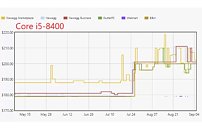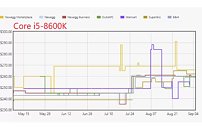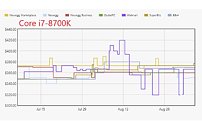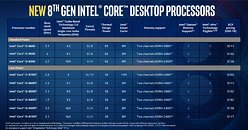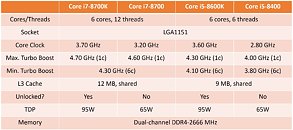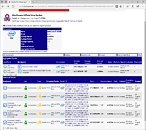
Intel 14nm Processors Face Shortages
Intel's 8th generation Core desktop processors based on the company's 14 nm node are facing shortages in the market, according to a Tom's Hardware report. Tracking prices and availability of popular 8th generation Core SKUs such as the i5-8400, i5-8600K, and i7-8700K, the report notes that retailers are heavily marking up these SKUs above their SEP, and many of whom are running out of stock often. This may not be attributed to heavy demand.
A possible explanation for these shortages could be Intel allocating volumes from the same 14 nm++ node for its upcoming 9th generation Core processors, which debut with three SKUs - i5-9600K, i7-9700K, and i9-9900K. Intel probably wants to launch the three chips not just at competitive prices, but also good enough volumes to win the 2018 Holiday season, and repair its competitiveness damaged by AMD 2nd generation Ryzen over the past couple of quarters.
A possible explanation for these shortages could be Intel allocating volumes from the same 14 nm++ node for its upcoming 9th generation Core processors, which debut with three SKUs - i5-9600K, i7-9700K, and i9-9900K. Intel probably wants to launch the three chips not just at competitive prices, but also good enough volumes to win the 2018 Holiday season, and repair its competitiveness damaged by AMD 2nd generation Ryzen over the past couple of quarters.
